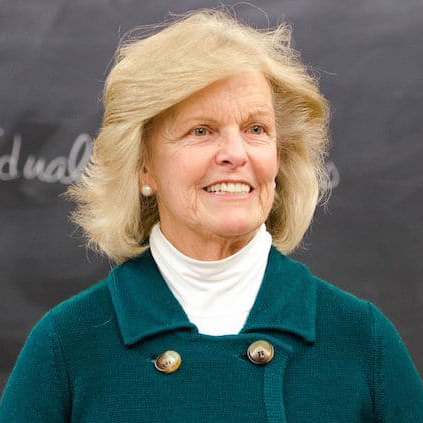Writing in the early 1900s, sociologist Max Weber depicted the coming modern world as an “iron cage” in which a caste of functionaries and civil servants monopolize power over the lives of citizens. He warned that the emerging bureaucracies would concentrate large amounts of power in a small number of people—creating a technically ordered, rigid, dehumanized society—eventually trapping all individuals in systems based on efficiency, rational calculation and control.
Weber’s warnings are helpful to recall when considering the response by parents to the federal implementation of the Common Core in the nation’s schools. Since Crisis began alerting parents of Catholic school children that more than 100 dioceses across the country have implemented the Common Core, parents have mobilized—forming Facebook groups, creating advocacy organizations, contacting their parish priests, their bishops, and their diocesan school superintendents—in an attempt to learn more about these new standards that will be driving the curriculum at their children’s schools. Yet, as Weber would have predicted, many of these parents feel powerless in the face of what has become a huge bureaucracy in Catholic K-12 education.
Unfortunately, parents are getting little help from the educational advocates, lobbyists and policy makers. In an attempt to allay parental concerns, the National Catholic Educational Association issued a position statement on the Common Core on May 31, 2013 reassuring parents that “The Common Core standards in no way compromises the Catholic identity or educational program of a Catholic school.” Concluding that “the Common Core standards are not a curriculum,” NCEA reassured parents that “A curriculum includes what is taught, when it is taught, how it is taught and what materials to use…. None of these items are included in the Common Core standards. For Catholic schools, all of these elements will continue to be determined by diocesan superintendents, principals, and teachers working to meet the needs of their students.”
Orthodox. Faithful. Free.
Sign up to get Crisis articles delivered to your inbox daily
But, many parents are not reassured—they know that standards drive the curriculum. Even Secretary of Education Arne Duncan has said that in a speech he gave on September 2, 2010.
In his speech, Duncan celebrated the “beginning of the development of a new and much improved generation of assessments for America’s schoolchildren … one more milestone, testifying to the transformational change now taking hold in our nation’s schools.” For Duncan, “the Common Core standards, coupled with the new generation of assessments, will help put an end to the insidious practice of establishing 50 different goalposts for educational success.” Duncan added that “in the years ahead, a child in Mississippi will be measured against the same standard of success as a child in Massachusetts.” Toward that goal, Duncan concluded that “the new assessments will help drive the development of a rich curriculum, instruction that is tailored to student needs, and multiple opportunities throughout the school year to assess student learning.” (Emphasis added.)
Assessments always drive curriculum. The Secretary of Education knows that—and parents know that also. When the federal government is developing the assessments that are being implemented in the nation’s Catholic schools, the curriculum will of course be created to prepare students to perform well on these assessments.
Even the National Catholic Educational Association had to acknowledge this fact in their May 31st statement. While the organization maintains that the “Common Core standards are not curriculum,” the position statement also acknowledges that “The Common Core represents a fundamental shift in the teaching and learning process. The Common Core establishes clear, measurable goals for students that assist teachers in making instructional decisions.”
In an effort to coordinate a response to Catholic parents’ concerns about the Common Core, the Association of Private Catholic and Independent Schools is co-hosting a conference on “Catholic Concerns About the Common Core” in Elberon, New Jersey next month (at the Stella Maris Retreat Center on November 5-6). But, parents are not invited to attend the conference. Rather, as Fr. Stravinskas, the Director of the Catholic Education Foundation, a grassroots organization founded “to preserve and expand Catholic schools,” recently told Michael Voris of ChurchMilitantTV, “those directly involved with the decisions” on the Common Core were invited to discuss the implementation of the standards. Fr. Stravinskas said that the decision to invite the “decision-makers” on the implementation of the Common Core was based on the “Catholic principle of subsidiarity.” While parents might disagree with that—considering that they are the “first educators” of their children, those invited to the conference were diocesan administrators involved in education, Catholic school principals, and professors of education from Catholic colleges and universities. Claiming that it was a “phased approach” Fr. Stravinskas told Michael Voris that parents would be involved later—once the superintendents and administrators had “the tools they needed.”
Many parents are feeling powerless—much like Max Weber would have predicted—in the face of what has become an overwhelming bureaucracy. They might have expected a bureaucratic response from the federal government, but few would have expected such inflexibility from their own Catholic school leaders. Now, as the nation is moving to a predictable, efficient, and reliable form of delivering educational “products” through the federalization of K-12 education, we can expect—as Weber promised us—that such extreme rationality may result in the “disenchantment” of our Catholic schools also.
